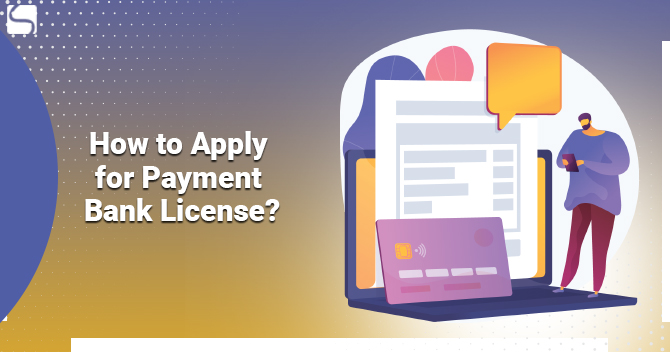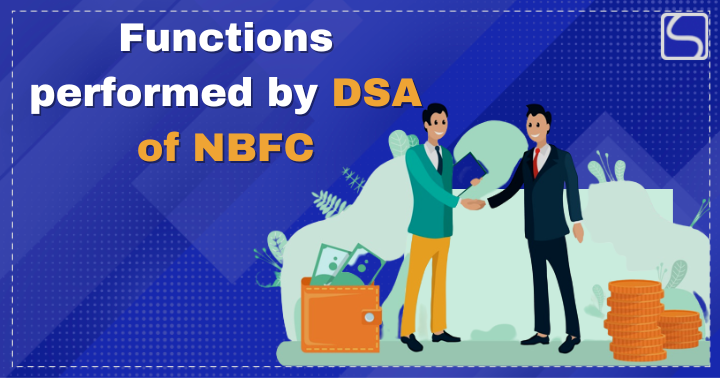How to Apply for Payment Bank License?

Karan Singh | Updated: Feb 20, 2021 | Category: Payment Bank License, RBI Advisory
After demonetization, a new wave of digital transactions in India has come, and people start becoming more dependent on online transactions and tend to use online payment portals, and it has given a quick boost to e-wallets and mobile wallets. So, to start a payment bank, one needs to apply for a Payment Bank License. According to the Banking Regulation Act, 1949, the RBI or Reserve Bank of India issues the Payment Bank License. These banks’ transactions are similar to normal banks, but they did not provide any loan and issue any credit cards. These Payment Banks simplifies banking life because it brings more accessibility and flexibility and offers various offers to the customers through secured digital platforms. Scroll down to check more information regarding Payment Banks and the process to apply for Payment Bank License.
Table of Contents
Payment Bank – An Overview
In 2013, RBI (Reserve Bank of India) introduced a new concept of a specialized bank model known as Payment Bank. Just like regular banks, the transaction or financial services are the same except for providing loans and credit cards. The primary purpose of introducing payment banks was to expand the reach of payment facilities to lower-income groups and assist small businesses. In the case of payment banks, there is a restricted deposit amount of up to a maximum limit of Rs. 1 lakh per customer which may increase further. According to the Banking Regulation act, payment banks have the permit to form new outlets such as ATMs, Business Correspondents, but cannot begin the banks’ activities and the minimum paid-up capital of payment banks should be Rs. 100 crores or more. The first payment bank was established in India is Bharti Airtel. So to establish a payment bank, one needs to apply for Payment Bank License in India.
Also, Read: What are the Requirements for Payment Bank License?
Regulatory Authorities Which Governs Payments Bank
- RBI Act, 1934.
- Companies Act, 2013.
- FEMA, 1999 (Foreign Exchange Management Act).
- Banking Regulation Act, 1949.
- DICGC Act, 1961.
- Payment and Settlement Systems Act, 2007.
Who can apply for Payment Bank License in India?
RBI has laid down a list of eligible promoters for Payment Bank License as it requires at least Rs. 100 crores paid-up capital. You can check the list of qualified promoters below who are eligible to apply for Payment Bank License:
- NBFCs or Non-Banking Financial Companies.
- BCs or Business Correspondents.
- Individuals or Professionals.
- Public Sector Companies.
- Supermarket Chains.
- Telecom Companies or telephone companies.
- Real Sector Cooperatives.
- Existing non-banking PPI or Prepaid Payment Instrument under the Payment and Settlement Systems Act, 2007.
Crucial details provided to RBI for obtaining Payment Banks License
Following are some essential details that should be provided to RBI for attaining Payment Banks License:
Information of the Individual Promoter
- Promoter’s Name.
- DOB or Date of Birth.
- Residential Status.
- Parent’s Name.
- PAN Number.
- Expertise Areas.
- Experience of the individual promoter.
- Details of a branch and bank account including the credit facilities.
- Track record of Financial Worth and Business.
Information of the Entity
- Shareholder pattern of the entity.
- MOA or Memorandum of Association and AOA or Articles of Association of the company or entity.
- Last five year financial statements of the promoter entity.
- Previous three years of Income Tax Returns (ITR).
Information of the Entities and Individuals in the Group of Promoter
- Names of entities and individuals.
- Management details.
- PAN Number.
- TAN Number.
- CIN Number.
- Details of Bank Account and Branch.
- Total assets of entities.
- Pictorial Organogram.
- Shareholding Details.
- Details of Stock Exchanges.
- Last five years Annual Report of all the group entities.
Process to Apply for Payment Bank License in India
Below is the process to apply for Payment Bank License in India:
- The Payment Bank License must be issued under the Banking Regulation Act, 1949, and it should be incorporated as a Public Limited Company under the Companies Act, 2013.
- Any registered company in India and desiring the commence banking business as per rule 11 of the Act shall make an application using Form III for a payment bank license.
- The application for the license shall be addressed to the CGM or Chief General Manager of the Department of Banking Regulation, RBI.
- The initial screening will be conducted to check the prima facie admissibility, and extra criteria may also be applied, if need.
- An External Advisory Committee containing well-known professional such as Bankers, Chartered Accountants, Finance Professionals, etc., shall consider the application.
- The EAC or External Advisory Committee may call for information and have negotiations & discussions with applicants deemed fit by it.
- The RBI will make the result issue an approval (in-principal), and it will be final and concluded. The in-principal approval shall stay tie for eighteen months, and it means that the bank has to be set up within a period itself.
- If any opposing features are found post-issuance of the approval, the Reserve Bank of India may execute extra conditions if required. Moreover, it may take out the in-principal approval.
Conclusion
Payment bank has made banking easier because of the flexibility and convenience they provide. They provide many services to consumers through secure digital platforms. Therefore consider opening a payment bank but don’t forget to apply for payment bank license. It is mandatory to obtain this license.
Also, Read: Meaning and Process of Online Payment Gateway in India 2020














